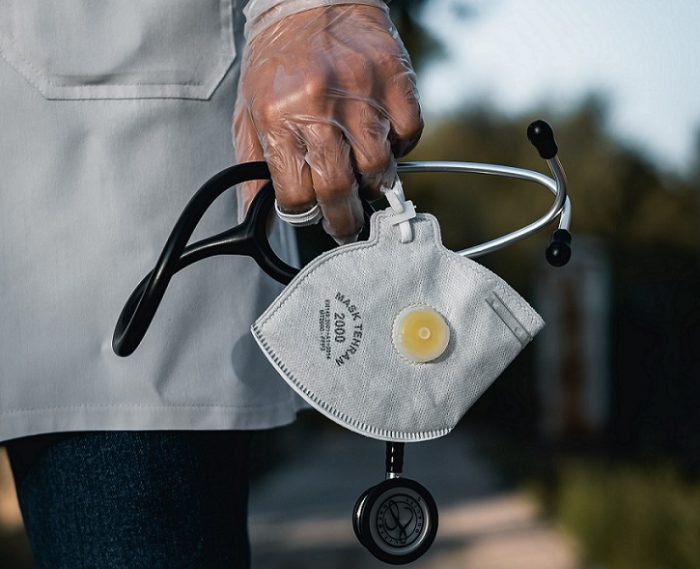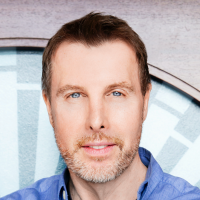Check out Elephant’s Continually-updating Coronavirus Diary. ~ Waylon
~
We don’t know because it’s just too soon to know.
But the human mind hates uncertainty, which makes not knowing excruciating.
So we start convincing ourselves that we do know, because the uncertainty is just too damn painful. The “thinking,” analytical left hemisphere of our brain is scrambling to make sense, while our more “feeling,” right hemisphere gets stressed.
We start convincing ourselves that we know. If you’re in the “there isn’t enough death to warrant this shutdown!” camp, you’ll seek out “experts” who confirm your view. Then you’ll release yourself from the pain of uncertainty, and in that release of pain, you begin to feel better. In feeling better, you intensify the confirmation bias as it now has a track record of making you feel more certain. Then you pay attention only to those “experts” who confirm your own views. The more fodder you find that supports your opinion, the more certain you feel.
In other words, in times of great uncertainty, the mind redoubles its efforts to know and the confirmation bias goes into high gear, doubling down on your perception of the truth. You seek more evidence that your assumptions are correct, and then reject, with increasing vigor, people who take a different view than yours.
But you don’t know. Nobody knows.
You don’t know. I don’t know. There are a lot of people who claim they know, but they don’t.
If you’re in the camp of wanting to stay with current measures and minimize death in the short term, you’ll seek out experts who confirm your view. You are also trying to make the uncertain certain, and by picking a side, there is a feeling of comfort in having a unified approach and others who support your view. The emotional right hemisphere has an answer from the analytical left hemisphere, and we feel better about the course we are on. Of course we do.
Each side has its talking points. Basically, it comes down to those who believe there will be increased mortality if this shutdown is allowed to continue, those who say “We need to accept death in the short term to maintain our economy and social connection” versus those who believe we should stick with the current measures, those who say, “We don’t know enough about how deadly this virus is and we need more information and safety infrastructure to contain it before we expose ourselves again.”
Both are assumptions. Both have facts and experts.
But we don’t know. We really don’t. And the more we gather evidence to support our own side, the more strongly we believe that we do know. It’s just how the human brain works in overtime to avoid admitting that it just doesn’t know.
At the extremes, are the people who believe this is a bio-weapon, a communist plot, a secret plan by Bill Gates, or a ploy at introducing mandatory mass vaccinations. There are plenty of sites that provide what they claim is “evidence” for all of these conspiracy theories. But rather than steep ourselves in confusion, it’s better to admit to ourselves that we just don’t know.
Because honestly, truly, madly, deeply—we don’t.
How about embracing not knowing as a form of knowing? How about making the uncertainty more certain? When we use conscious awareness to embrace the truth of not knowing, then we have a solid ground in knowing that we don’t know. But most people unconsciously and compulsively build a fantasy house of cards from their own opinions and confirm it with the opinions of others who also don’t know.
How about for now, we just admit we don’t know? How about we try to see both sides and embrace the uncertainty? How about letting the powers that be continue to advise us on the most logical, unified approach? Maybe not forever, but it’s a plan for now that appears to be buying us time.
I know there is great suffering going on every day we stay shut down. I can’t know for certain, but I worry that if we open up to try and alleviate the suffering in the short term we could well magnify it in the long term.
From a neuropsychological standpoint, it’s much easier for us to embrace the uncertainty that is real. Until we have definitive information (which we are getting more of every day, especially from countries that are not social distancing), can we just stay unattached to a particular plan of action and consciously breathe in the not knowing? After the initial pain of releasing your illusion of knowing, your body and mind will operate with much less adrenaline and cortisol knowing—and dare I say embracing—that you don’t know.
At this point, nobody knows when it is best to reopen. If the governments say to reopen too early and we get devastated, we are going to be in a much worse position than we are now. If we give it two to four more weeks, we could have more solid information and more potential treatments, not a vaccine, but treatments. Right now, we are pretty much defenseless to this enemy, and sending our healthcare workers and the public onto the front lines with no viable treatment options could well be a disaster. Our people may march in once, and if it backfires, we may never march again because the human brain is ruled much more by fear than by anything else. In trying to reduce fear with false certainty and bravado, we may well be setting ourselves up for slaughter and a return to operation much farther into the future than we’d all like.
You don’t know. I’m a doctor—and I don’t know.
You can adopt an attitude of not knowing and gathering information from both sides. Or you can just continue to convince yourself that you and the “experts” you choose have the solution and nobody else can see it.
I don’t know.
And neither do you.
~


 Share on bsky
Share on bsky





Read 1 comment and reply